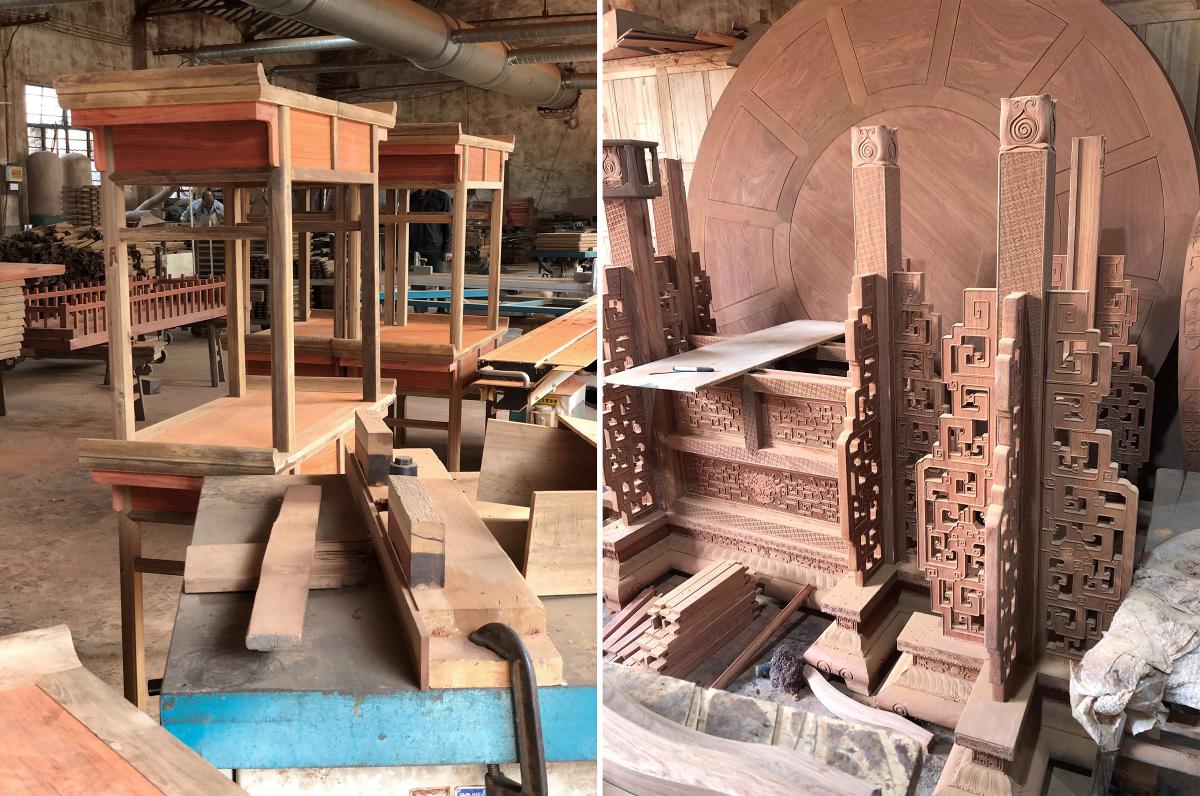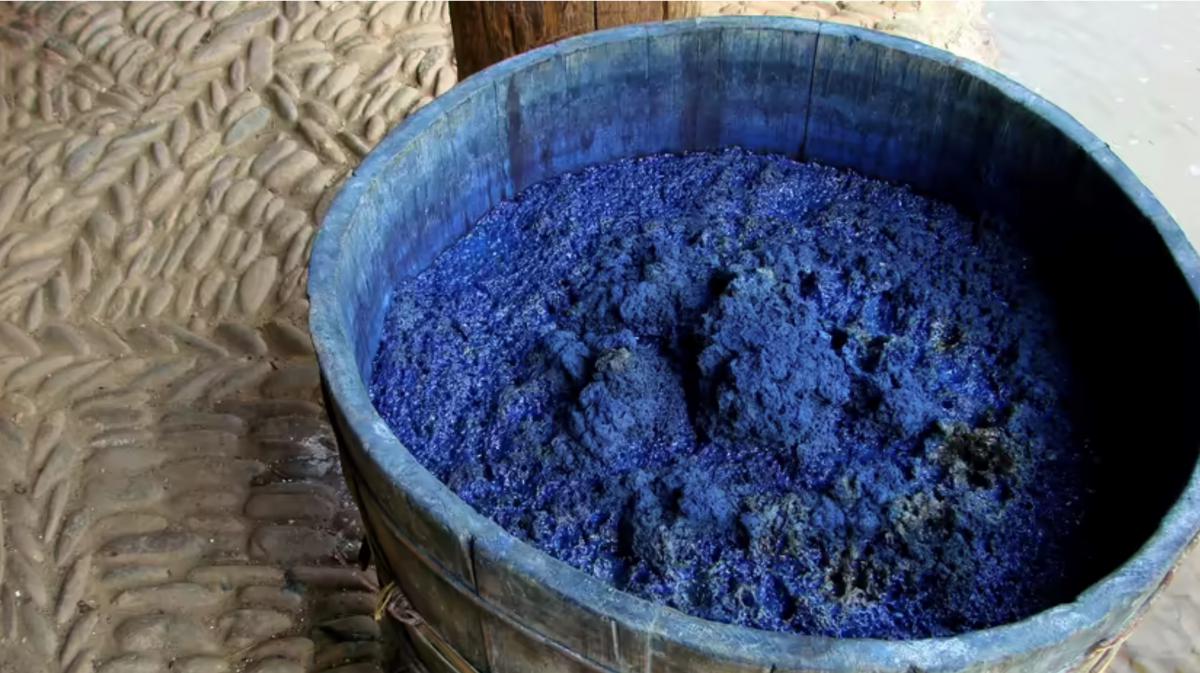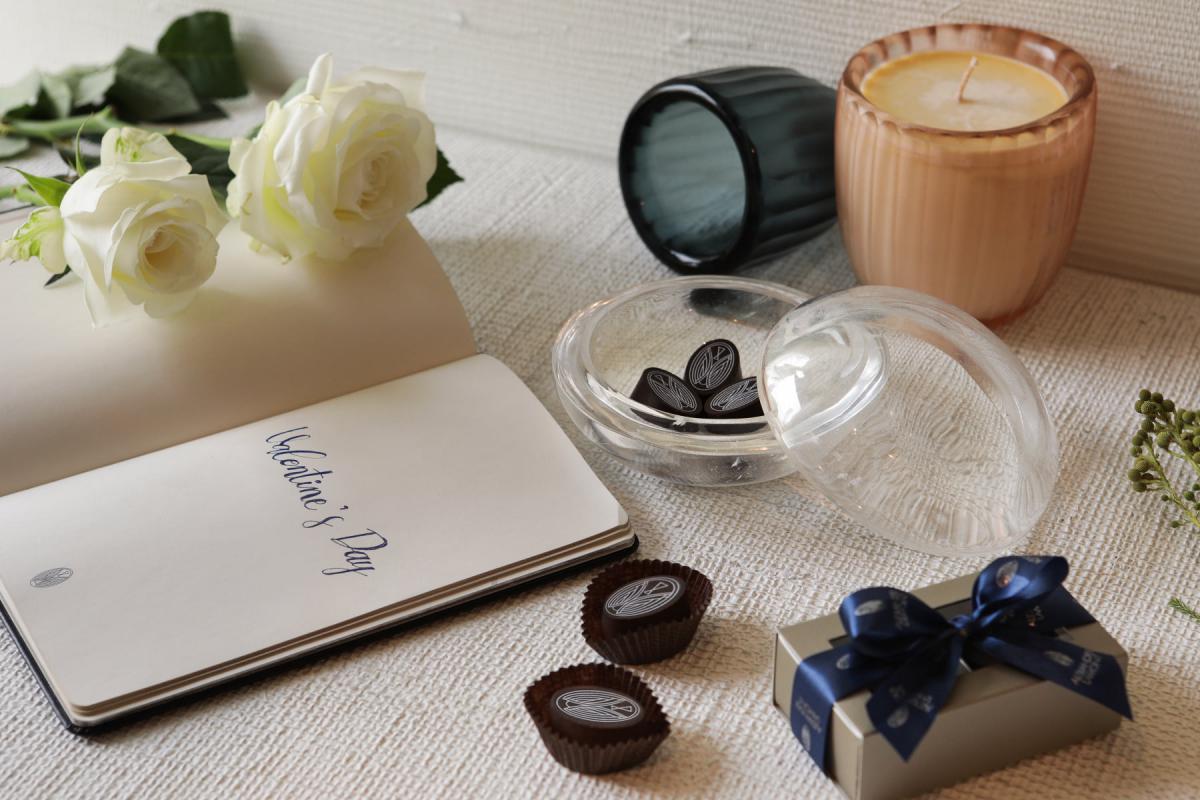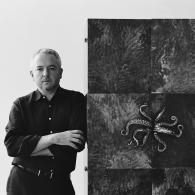In the preface to his 2012 Catalogue Alexander Lamont talks about his first visit to Thailand as a boy conjuring memories through the smells and sensations of those early trips:
“I followed my father to rattan factories thick with the smell of peeled, steamed and burnt rattan. Teak workshops where the air was full of the oily dryness unique to that ancient building material of Southeast Asia. And in those days there was lacquer; a pungent treacle that requires heat and humidity to dry. Such visceral, pleasurable experiences never fade but live on in the body and mind as golden memories.”

Rattan is boiled before bending, so a rattan factory is full of vats steaming and bubbling, full of the smell of this wonderful grass. Often the peel (surface) is fired to colour it so a toasty smell mingles with the grass. Alexander worked in a rattan factory in Bangkok when he was first learning Thai, and has lived with rattan furniture since his Dad’s first containers of Papasan chairs in the seventies.

The smell of wet clay and porcelain in Bali, Jingdezhen, Cornwall and Thailand is a powdery, rich deep smell - out of the earth and fired to make the earliest vessels and bowls. Richly romantic for craftspeople and lovers of ceramics.

Rosewood, teak and mahogany are the core woods of Asia. Teak is an oily wood found in Northern Thailand and Burma. Teak woodyards have a fantastic smell that fills the air.

Indigo is made throughout Asia and always has an earthy, musty, smoky smell. It is the King of dyes as it coats the material without damaging it. For Alexander the smell of indigo brings to mind many journeys to Japan, Northern Thailand, Yunnan and Vietnam.
Those golden memories from his childhood travels are what inspired Alexander to create furniture, lighting, objects and wall panels that have a richness of texture, and an energy and tactile quality that calls out to be touched. The powerful ways in which sensory experience connects us to the core of our being, to our intimate selves, is a theme that always runs through Alexander’s work.
“Objects have power” says Alexander, “they connect us to people, places, memories…”

A group from Alexander Lamont’s 2020 Sirena Collection creating a sense of adventure, of treasures brought home to remember journeys afar

Marcel Proust author of In Search of Lost Time
Sometimes the power of such sensory experiences are referred to as the “Proustian effect” referring to Marcel Proust, author of the 3,200 page masterpiece, In Search of Lost Time, written in the early 1900s.
“And once I had recognized the taste of the crumb of madeleine soaked in her decoction of lime-flowers which my aunt used to give me (although I did not yet know and must long postpone the discovery of why this memory made me so happy) immediately the old grey house upon the street, where her room was, rose up like the scenery of a theatre...”
We have all experienced something similar to what Marcel Proust describes: the sensation of being transported into memories of the past by a sound, a musical phrase, the shape and texture of something held in our hands, or a scent carried on the air, a taste of something on the tongue. Often we cannot quite place what this strongly familiar sensation is or where it comes from in our past but it triggers something profound within us that reverberates through our being and often stays with us for days, the warm nostalgia washing over us again and again and entering our dreams at night. This is the power of the senses.

Neuro scientists agree that Proust’s explorations of his sensory experience foretold what brain imaging and scientific methods have established today: that more than any other sensory stimuli scents are better at triggering memories. This is because of the connections olfaction or the sense of smell has with parts of the limbic system involved in generating emotion and memory. Smell can conjure memories, places, people, sensations with an immediacy that is unique in human experience.

This month at Alexander Lamont we celebrate the olfactory arts with an exploration of scent and how it enhances interiors and our personal rituals. At our Sunday Salon hosted at Alexander Lamont’s Warehouse 30 Gallery in Bangkok, perfumer Mathieu Delabre will lead clients and friends on a journey of discovery through the sensory world of scents.

Alexander has always been passionate about scent whether worn as an eau de cologne or enjoyed in the home as incense or candles. He loves the daily ritual that it brings to our lives and the esoteric characteristics that each scent carries as we move through our day. Working with a perfumer in 2019 Alexander created and developed three signature scents for his gift range of scented candles.



“Listening” to incense or the Japanese art of Kodo is an even more enhanced way of enjoying scents in the home. Alexander Lamont’s incense burners come with a carefully edited selection of incense discovered on his journeys to Japan.
Lighting a candle or a stick of incense at the close of the day is an intimate ritual that brings us home and signals to our senses that it is time to relax and unwind. As Marcel Proust discovered when he inhaled the scent of his lime blossom tea, our spirits are immediately enlivened and warmed by our senses bringing distant memories and the remembrance of things past.
For further updates of our upcoming event on make sure you sign up to our newsletter or like our Facebook Official page
facebook.com/AlexanderLamontOfficial





Add new comment